 |
| Vaughan Williams: Sir John in Love - Nancy Holt, Alexandria Moon, Jacob Bettinelli, Jack Holton & ensemble - British Youth Opera (Photo Alastair Muir) |
Ralph Vaughan Williams: Sir John in Love; director Harry Fehr, Southbank Sinfonia, conductor Marit Strindlund; British Youth Opera at Opera Holland Park
Reviewed 24 August 2022RVW's Shakespearean opera gets an anniversary staging in a engaging performance bringing out the work's lovely sense of warmth and humanity
Vaughan Williams' 150th anniversary has not brought out productions of his operas at major UK opera companies, despite both ENO and Covent Garden having performed RVW's operas within the last 20 years or so. So, it is very heartening that British Youth Opera (celebrating its own 35th anniversary) chose RVW's Sir John in Love for its Summer production this year.
 |
Vaughan Williams: Sir John in Love - Johannes Moore
British Youth Opera (Photo Alastair Muir) |
Sir John in Love has a rather patchy performance history, written in 1928 it was premiered by the Royal College of Music in 1929, it had to wait until 1948 for a professional production. Sadler's Wells Opera performed it in 1958, and then it had to wait until 2006 for another professional outing in the UK, when ENO presented its production. The work has always had rather more student than professional productions. Partly, this is RVW's own fault, the work has a whopping 20 named singing roles which is double the cast of Verdi's Falstaff.
British Youth Opera's production of RVW's Sir John in Love opened at Opera Holland Park on 24 August 2022. The production was directed by Harry Fehr, with Marit Strindlund (herself a BYO alumna) directing the Southbank Sinfonia, designs were by Nate Gibson and lighting by Chuma Emembolu.
We saw the first of two casts (and admirably there was a cover cast too), with Johannes Moore as Falstaff, Armand Rabot as Pistol, Phillip Costovski as Bardolph, Grace Marie Wyatt as Anne Page, Eva Gheorghiu as Mistress Page, Jack Holton as Page, Lexie Moon as Mistress Ford, Jacob Bettinelli as Ford, Nancy Holt as Mistress Quickly, Steven van der Linden as Fenton, Joshua Saunders as Shallow, James Micklethwaite as Slender, Matthew Bawden as Simple, Justin Jacobs as Dr Caius, Emyr Jones as Sir Hugh Evans, Toki Hamano as Nym, Edward Kim as Rugby, Patrick Owston as the Host of the Garter Inn.
RVW's own libretto stays far closer to the play than does that of Boito for Verdi, though RVW introduces other poets to provide arias and ensembles, pause points in the mad gambol of plot. He also uses a large amount of folk-song, deliberately so, and whilst the orchestral accompaniment incorporates folk tunes, a lot of the folk material is diegetic; RVW's creates opportunities for the characters to sing the songs themselves. The work has no recitative as such, the dialogue flows as a sort of continuous orchestral accompanied arioso, and the orchestra is important as partner as well as accompanist. This can create challenges for a younger cast, there is a lot going on in the orchestra, but there are rich musical rewards. And the moments when things pause, when RVW introduced extra material are often completely magical.
Fehr and Gibson took advantage of Opera Holland Park's wide stage to present the three sets for all scenes in the first two acts, with the Ford's house at the centre. Scene changes (which are accompanied by orchestral interludes in the score) were effected by the entire cast moving the props so that the centre of the stage was always the scene being played out, but the other two might still have background action going on, thus giving us an idea of the continuing life of Windsor town.
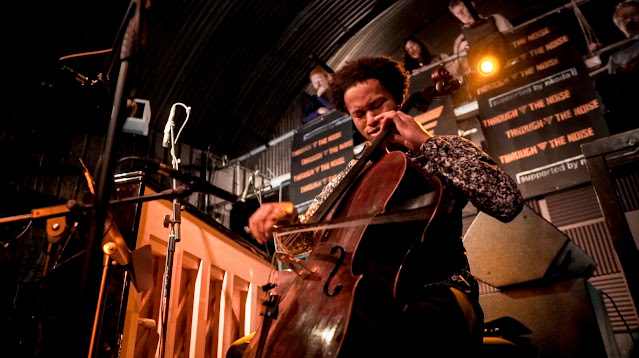

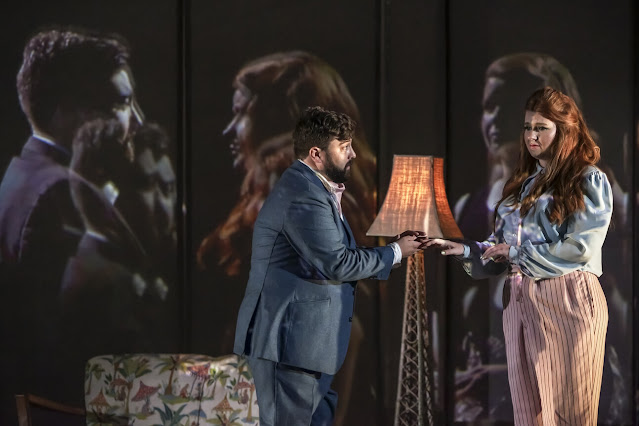
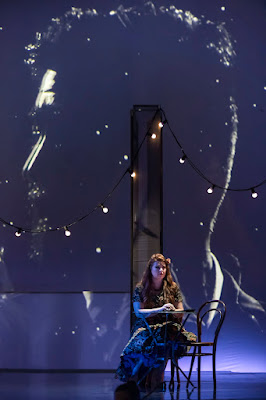
.jpg)




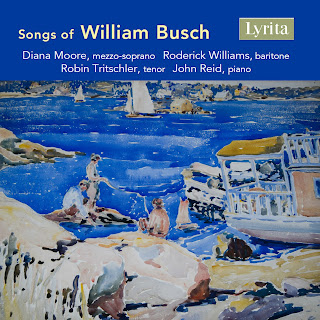

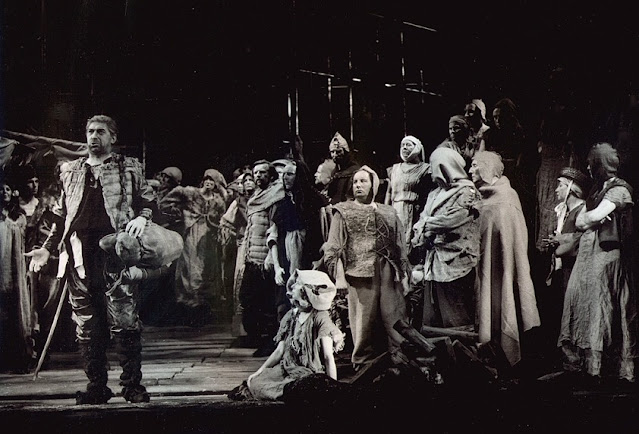

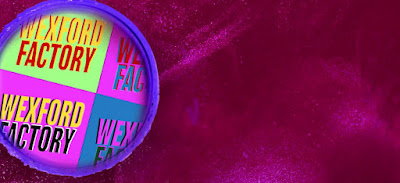
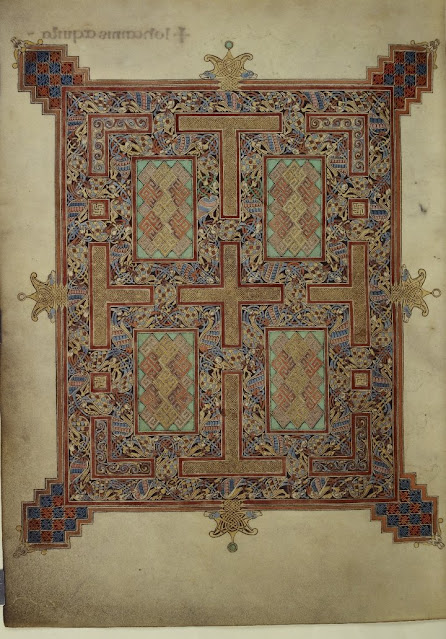


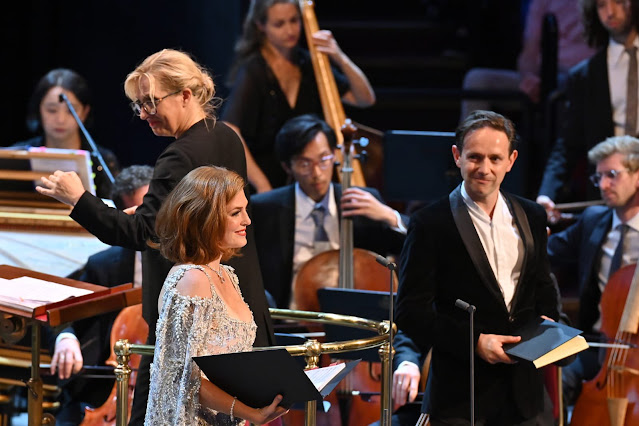
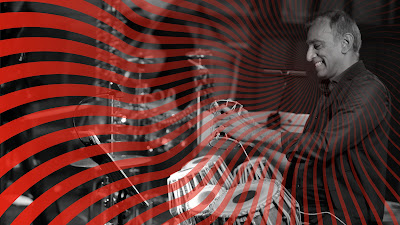


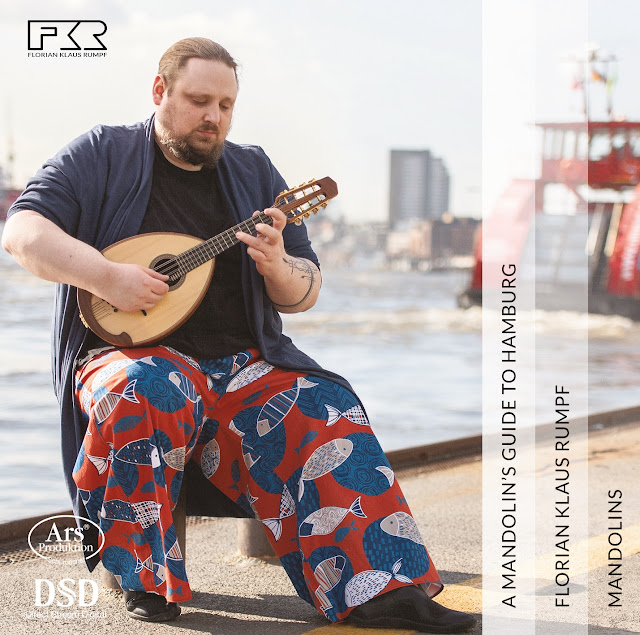
%20(1).jpg)
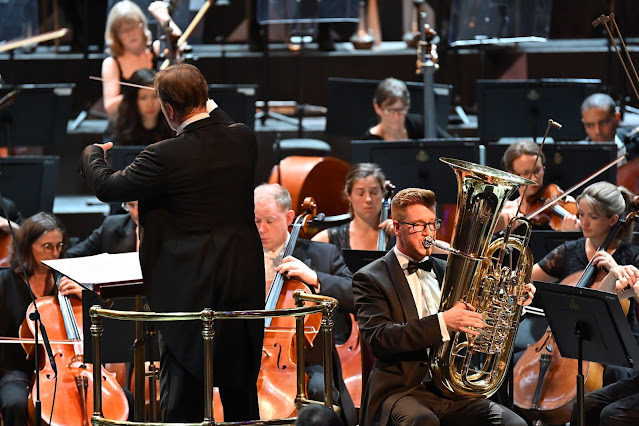

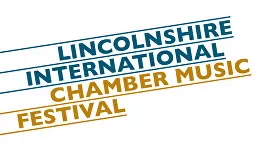


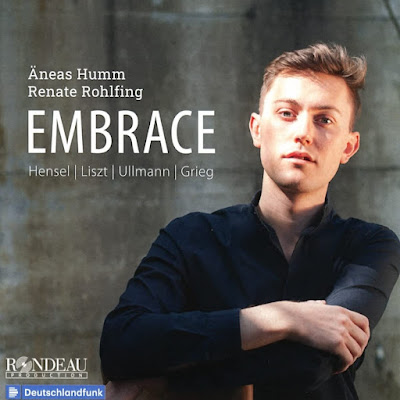
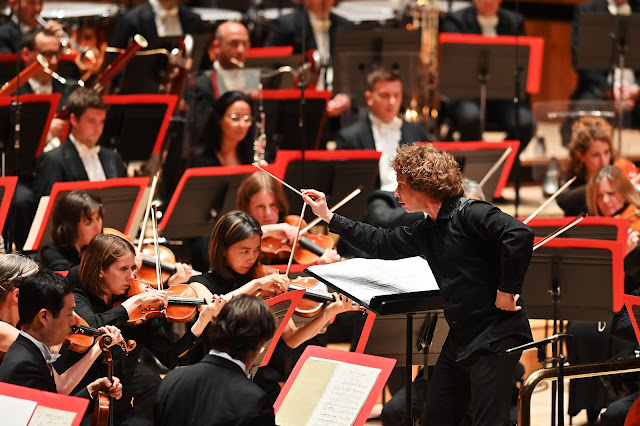
.jpg)








